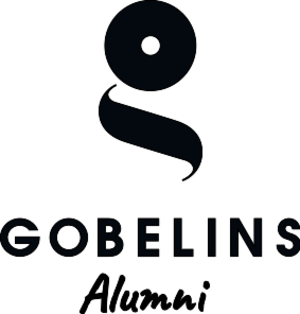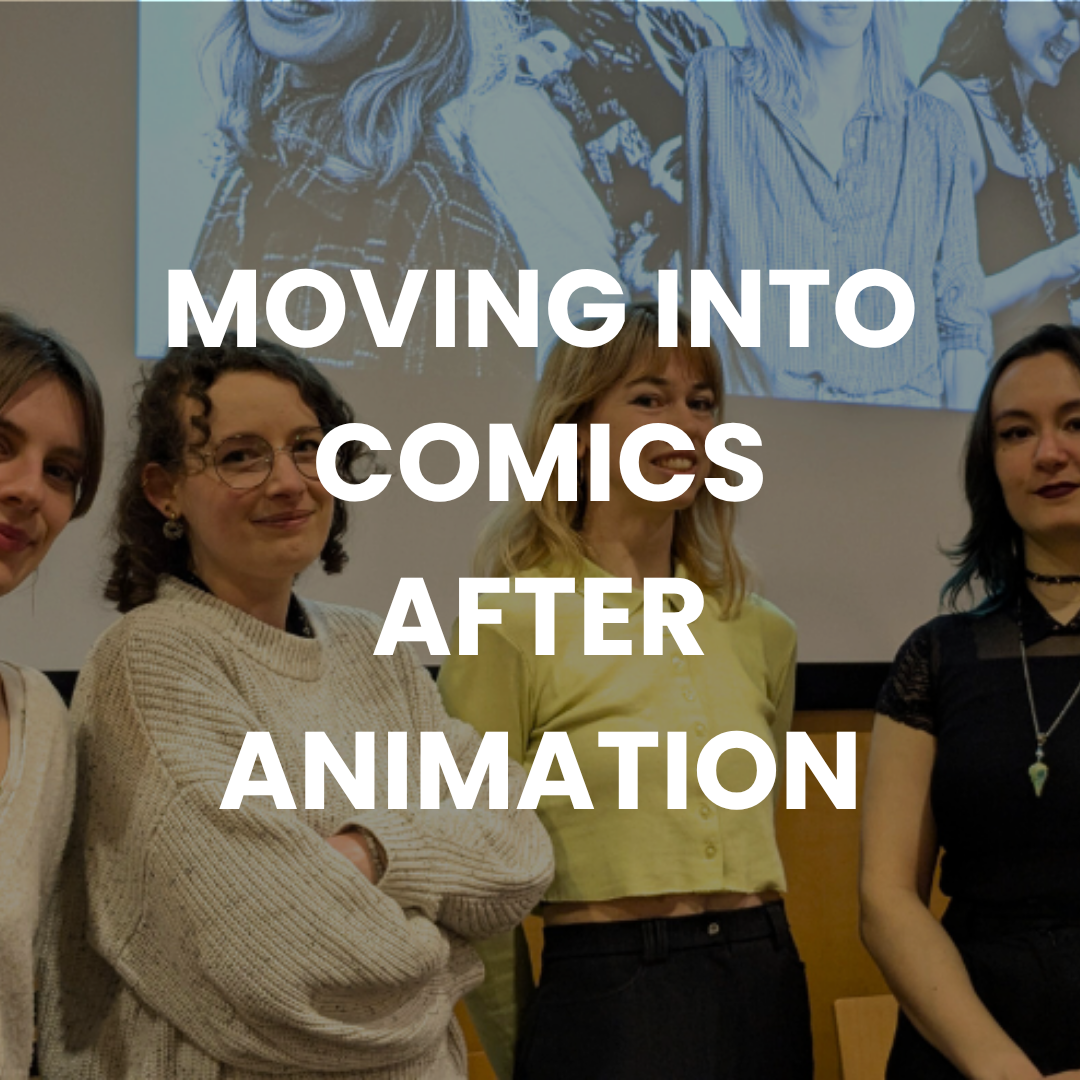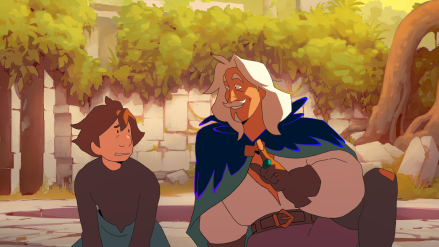News

Focus on copyright in comics
How do you make a living as a comic book author or illustrator?
After the "How to get into comics after animation" and a focus on writing and technique, discover the last part of the feedback from the round table " Women in comics " organized for the 60th anniversary of GOBELINS Paris.
Our four guests:
- Sixtine Dano (Animated Film Designer and Director, class of 2018): author and cartoonist, 2D animator and director.
- Claire Fauvel (Animated Film Designer and Director, class of 2011): author and cartoonist.
- Audrey Lainé (3D Character Animator, class of 2015): 3D animator and cartoonist.
- Diane Truc (Animated Film Designer and Director, class of 2017) is a 2D animator and webtoon illustrator.
Revenue advances: the main source of income
In comics, remuneration begins with what is known as an advance on receipts. This is a sum paid by the publishing house to the author, calculated on the basis of estimated book sales.
How does this advance work?
- Estimated amount: Authors generally receive between 6% and 14% of the book's pre-tax retail price, applied to an estimated print run.
- Payment : The advance is generally paid in several instalments (for example, when the contract is signed, when the script is submitted, then when the plates are delivered).
- Repayment: The advance is repaid to the publishing house through sales. Until this amount has been covered, the author receives no additional royalties.
Please note: If sales fail to repay the advance, theauthor does not have to repay the difference. The publishing house assumes this risk.
Why is the advance amount important?
The higher the advance, the greater the publisher's investment - and therefore the more resources it will devote to promoting the book. It's a strategic lever for visibility and sales...
Can we negotiate?
Authors can negotiate :
- The percentage of rights (often between 6% and 14%);
- certain important contractual clauses: choice of cover, right of review over adaptations, translations, or what happens to the work in the event of death...

"When you come from an animation background, you can negotiate a higher percentage on adaptation rights if you bring the project yourself".
Sixtine Dano
Transfer of rights: a negotiable commitment
In France, copyright is generally assigned until 70 years after the death of the author. This means that the publisher can exploit the work (publication, republication, adaptation, etc.) for the full duration of the assignment, unless otherwise specified in the contract. However, this transfer period is negotiable, particularly for certain types of exploitation.
The webtoon model - a digital comic strip in vertical format, popularized in South Korea - is one such example. In this case, artists recover their rights after a few years. They also receive 70% of the royalties.
"In webtoon production, rights are usually assigned to publishers for only a few years".
Diane Truc

What should you do if your work is unpublished or misused?
If a publishing house fails to publish a work, or publishes it in a manner deemed insufficient (poor distribution, lack of promotion...), the author can legally claim his or her rights back.
This clause must be included in the contract, or supported by the French Intellectual Property Code, which protects creators in the event of inaction on the part of the publisher.

"You can reclaim the rights to your comic book and release it yourself or through another publishing house. There are plenty of books that have already been released in bookshops two years earlier but have been so badly marketed that the authors have decided to reclaim their rights and resell them elsewhere".
Sixtine Dano
















No comment
Log in to post comment. Log in.